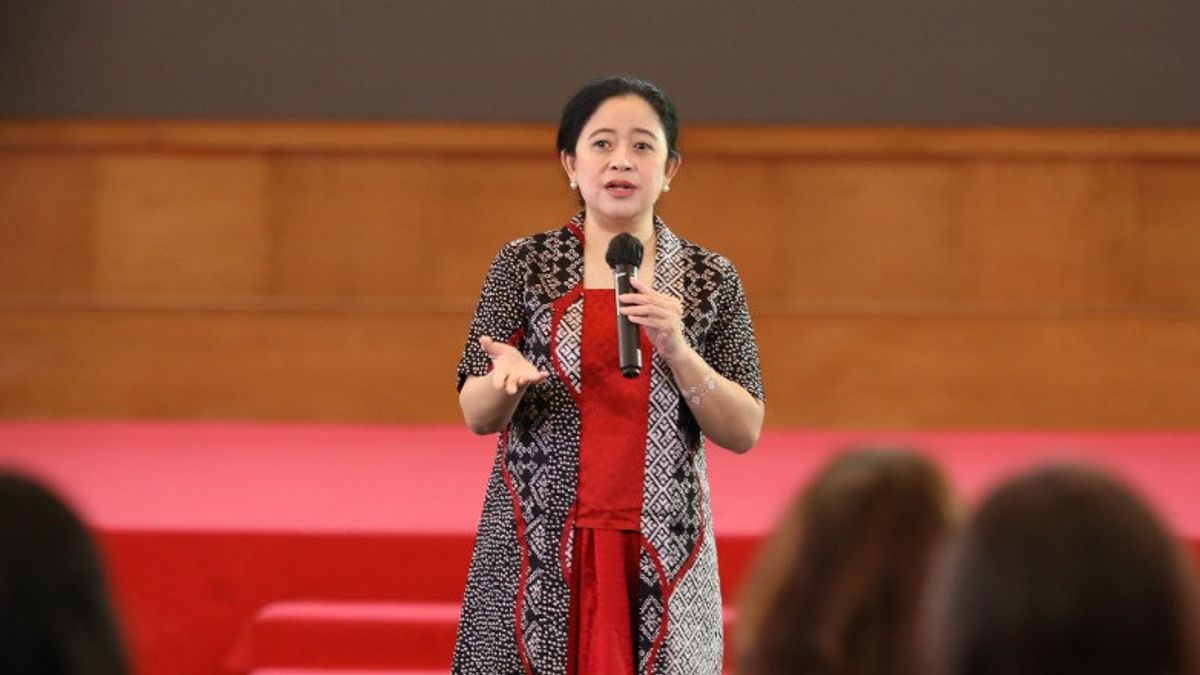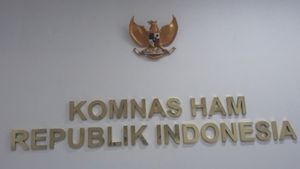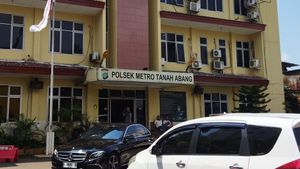JAKARTA - The Legislative Body (Baleg) of the DPR has agreed on the Draft Law on Maternal and Child Welfare (RUU KIA) to be discussed further in discussions with the government.
This agreement is considered the first step for the DPR to make the state present to provide protection and welfare for its citizens, not only women (mothers) and children, but also men in their position as fathers.
Women's activist from the Sarinah Institute, Luky Sandra Amalia, explained that the discussion of the MCH Bill is still long and may encounter a steep road. The reason is that there are still one or two factions that will argue over the definition, as happened in the previous discussion of the Draft Law on the Crime of Sexual Violence (TPKS).
"Luckily at that time (the TPKS Bill) there was good cooperation between female legislators, especially the female DPR chairmen who had the support of women activists, so that then the Chair of the DPR, Puan Maharani, confidently declared the TPKS Bill to be valid as law," said Luky in his statement, Friday, June 17.
According to this researcher at the Center for Political Research at the National Research and Innovation Agency (BRIN), discussing the bill on women is never easy. Indonesia's representative institutions are still dominated by men, even the number of representations of women legislators has not yet reached the critical 30 percent.
However, said Luky, this period was different from previous periods in which the chairman of the DPR was always a man. The DPR for the 2019-2024 period is chaired by a woman.
"This condition is certainly a valuable moment that must be utilized as well as possible by legislators, especially women, who want to realize protection and welfare for mothers and children through the MCH Bill," said this PhD candidate from the University of Sydney.
Luky said that there was no need to doubt the alignment of women leaders on women's issues.
“Especially if male legislators feel 'what else do you want this woman to do?' As Pitkin (1967) said, when substantive representation does not work, then the choice is descriptive representation. If male representatives feel that this bill is not urgent, then female legislators will be the only hope,” he explained.
Furthermore, Luky said, the rare moment of a female DPR chairperson became an important capital for the struggle to push the MCH Bill.
"As long as the chairman of the DPR is a woman. The presence of a female DPR chairman in the midst of a patriarchal majority of male council members is a breath of fresh air for the struggle to push the IKA Bill to be passed which not only protects women (mothers) and men (fathers) but also children, future generations," said Luky .
The hijabi activist agrees with Puan's statement that preparing the golden generation must start now. According to Luky, it is also important for women legislators to reopen the tap of cooperation with women activists who are concerned about this issue.
“However, the position of women activists outside the parliament is as a pressure group and this has proven to be effective, including in pushing for the passage of the last TPKS Bill. Good synergy between women in parliament and outside parliament will fulfill women's leadership capital in parliament," she said.
"The presence of the MCH Bill will be a good legacy left by the DPR for the 2019-2024 period, under a female DPR chairperson, whose term of office ends in two years," added Luky.
As is known, the Bill on Maternal and Child Welfare has gone through harmonization in the DPR Baleg for further discussion. The chairman of the DPR RI, Puan Maharani, said that this bill was designed to create superior Indonesian human resources (HR).
"We hope that the Bill on Maternal and Child Welfare which is included in the list of the 2022 Priority National Legislation Program (Prolegnas) will be completed soon. This bill is important to welcome Indonesia's golden generation," said Puan, Monday (13/6).
The MCH Bill focuses on the golden age of a child, which is a crucial period of child growth and development which is often associated with the first 1,000 days of life (HPK) as a determinant of a child's future. Therefore, this bill emphasizes the importance of managing the welfare of mothers and children in a directed, integrated, and sustainable manner.
"And this must be a joint effort by the central government, regional governments, and the community to meet the basic needs of mothers and children," said Puan.
“The MCH Bill also stipulates at least six months of maternity leave, and cannot be dismissed from work. In addition, mothers who are on maternity leave must continue to receive salaries from corporate social security and corporate social responsibility funds,” explained Puan.
The MCH Bill also stipulates the determination of wages for mothers who are on maternity leave in which for the first 3 months of leave, working mothers receive full salaries and starting in the fourth month, 70 percent of the wages are paid. According to Puan, rearranging the period of maternity leave is important to ensure the child's growth and development and recovery for the mother after giving birth.
“The DPR will continue to carry out intensive communication with various stakeholders regarding this matter. We hope that the government's commitment to support this regulation is for the future of the nation's next generation," said the mother of two.
The English, Chinese, Japanese, Arabic, and French versions are automatically generated by the AI. So there may still be inaccuracies in translating, please always see Indonesian as our main language. (system supported by DigitalSiber.id)













